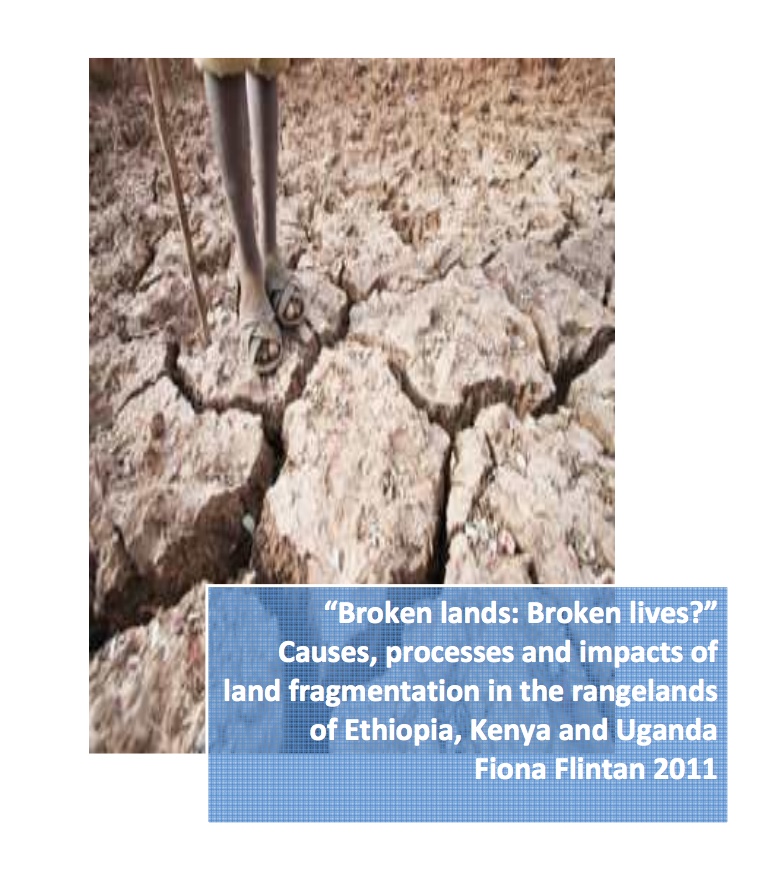Broken Lands, Broken Lives? Causes, processes and impacts of land fragementation in the rangelands of Ethiopia, Kenya and Uganda
The report considers the causes, processes and impacts of rangeland fragmentation on pastoralists in Ethiopia, Kenya and Uganda. Causes and processes include privatisation of resources, commercial investment, invasion of land by non-native plants, commercialisation including growth in individual enclosures, and conservation/National Parks. The impacts include increasing wealth divides and a growing inability to overcome and vulnerability to drought.


